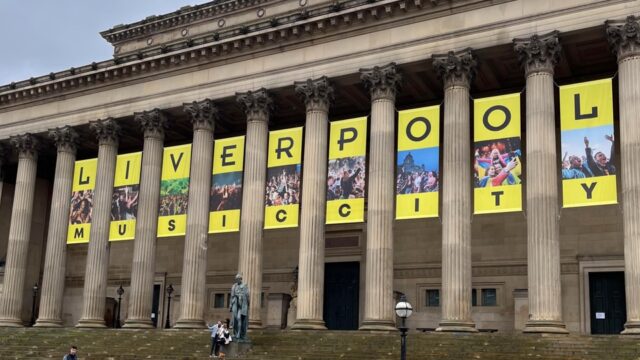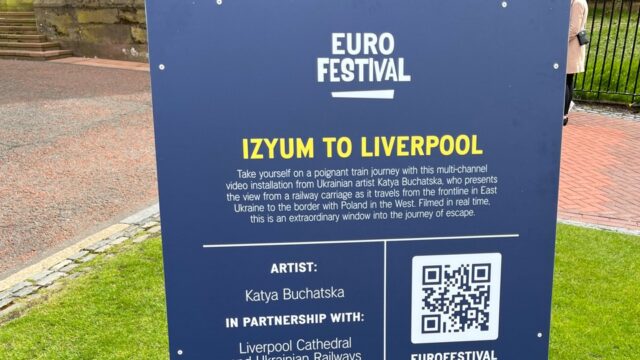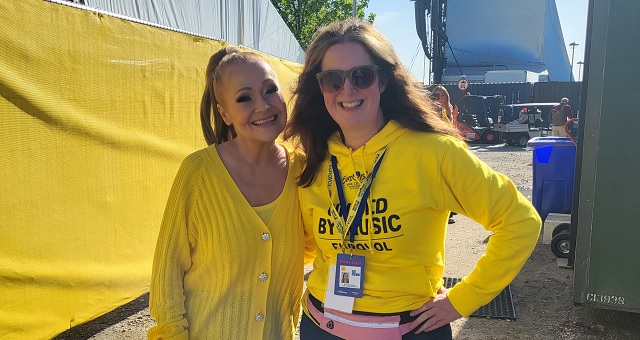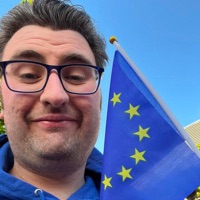Playing With And Interpreting The Numbers
Eurovision in Liverpool 2023 saw one of the biggest – if not the absolute biggest – cultural events program to support the Song Contest ever. Events and activities took place in all corners of the city and across the Liverpool City Region (LCR). This allowed the LCR to show off its biggest social and cultural assets.
The question on everyone’s lips was how much of a social, cultural, and economic impact the contest had in Liverpool. This was the purpose of the event ‘Liverpool Calling – The Results are In’ event hosted on Thursday, 26th October, in Liverpool at the ACC Liverpool – the venue that hosted the contest. It focused on the city’s journey from being announced as the host city in October 2022 to deep-diving into the Contest’s wider impacts on the city.
During the event, attendees heard first-hand the evaluation of the Song Contest and the impact of the contest in Liverpool ‘by numbers’. The morning session focused on this and featured a range of speakers, including Professor Matt Ashton, Director of Public Health at Liverpool City Council, Claire McColgan CBE, Director of Culture Liverpool, and Metro Mayor Steve Rotheram for the Liverpool City Region Combined Authority. It was clear from this session Eurovision had an enormously positive impact in Liverpool in terms of attracting visitors, creating a net economic boost for the city region, and engaging people in its diverse cultural events program.
In addition, it featured highlight videos from the United Kingdom broadcaster, the BBC, and the EBU. There was a clear distinction in presentation between the BBC and the EBU when it came to measuring the contest’s impact. The BBC’s video focused on Eurovision as a television production and shared some of the highlights of the contest from across the three live shows. In contrast, the EBU video recognised the cultural significance of the contest in viewing figures across a range of media platforms, including the Eurovision.tv website, newsletter, and live blogs, as well as social media engagements and the number of streams of Eurovision songs on streaming services.

Liverpool Music City outside St George’s Hall (Photo: Jamie Halliwell)
Eurovision Is Bigger Than You And Me
What was clear is that the EBU continues to facilitate the commercialisation of the Eurovision Song Contest through its own media platforms but also on platforms in which you access Eurovision content (e.g., Twitter, TikTok, Spotify). All this digital content is interlinked and connected, driving the numbers even further. For example, the official Eurovision podcast is shared and linked to on social media and can be listened to on YouTube. This can be shared even further by audiences and fans on social media.
In my research, I conceptualised these practices as a ‘digital ecosystem’ of Eurovision fandom. This describes how Eurovision fan practices and media content are interconnected between online spaces (e.g., social media platforms and websites) and ‘offline’ spaces that permeate each other (Van Dijck, 2013). Consequently, from seeing the sheer volume of numbers first hand (for instance, 105 million unique accounts were reached on TikTok during the two weeks of Eurovision), there is no doubt the numbers will get bigger in the years to come.
Public Health And Wellbeing
The second half of the day comprised multiple panel sessions that explored the impact of Eurovision on a variety of topics, including ‘Public Health and Wellbeing’, and ‘Education and Community Impact’. These sessions highlighted some of the key impacts that were illustrated in the Eurovision 2023 evaluation reports that were published by the Heseltine Institute for Public Policy, Practice and Place, University of Liverpool.
There was no doubt that Eurovision helped to improve public health and well-being in the build-up, during Eurovision week, and after the event had concluded. For people, there was a need of something to look forward to, given that there is a general sense of poor national wellbeing and living in a gloomy climate. Even upon the conclusion of Eurovision, people felt that their wellbeing improved and that Eurovision was something for them.
Some of the factors in this wellbeing uplift included solidarity with and embracing Ukraine, and feeling a sense of belonging in that Eurovision helped to build bridges between people and their communities. Liverpool residents and those visiting the city explained that they felt a ‘citizen of the world’ through the ‘United by Music’ slogan, which helped to bolster their pride of the city.

Eurofestival sign (photo: Jamie Halliwell)
It was also striking that the activities and events around Eurovision in Liverpool also helped people stay well and improve their physical and mental wellbeing. It is worth emphasising that music, art, cultural activities and exchanges are at the heart of public health as they can facilitate unity, joy, and community. One example that illustrates this point is that of a child who won an egg design competition and felt that they had ‘won Eurovision’. This highlights the importance of these events for children to capture life-long memories that will not be forgotten.
Those who attended Eurovision in Liverpool will be aware of the many events that took place in the city centre. However, there were other activities taking place outside of the city centre including those residents who were unable to travel to Eurovision events. This may have been because of, for example, their limited mobility, lack of confidence, economic situation, or lack of knowledge about the events programme. One example of this highlighted in the ‘Community and wellbeing’ evaluation report was the Nwoko Arts Group, which visited care homes. This group created and delivered musical performances incorporating care home residents’ feelings, memories, and stories.
Another evaluation report examined people’s experiences of nightlife and entertainment and its impacts on public health and wellbeing. Researchers had conversations with people in the nighttime to hear about their nightlife experiences while visiting Liverpool for Eurovision. From those that they spoke to, ¼ of respondents identified as LGBTQ+.
Researchers found that during the night-time, there was a reduction in alcohol and drug consumption amongst respondents. This may have been due to the pressures of the rising cost of living in the UK, which may have inflated the cost of alcohol during the event. Additionally, policing was an important public health intervention in the city. A police presence in the city was viewed positively as it also made people feel safe, which was also helped by police dressed in Ukrainian flag colours to highlight their solidarity.
Education And Community Impact
Eurovision had a profound positive impact on education and local communities. Some many events and activities were hosted through the EuroStreet and EuroLearn programs, funded through Heritage Lottery and Spirit of 2012 funds. They enabled community organisations across the Liverpool City Region (LCR) to engage in events to facilitate cultural exchanges between Liverpool and Ukraine and celebrate Eurovision.
One of the events that was discussed during this session was the Solidarity disco banquets. These events enabled people to unite in intercultural exchange by sharing food, music, identities, culture, art, writing, and dancing. For example, those who took part were involved in making food to share – notably Ukrainian Borscht and Liverpool Scouse – but each person would prepare their dish in their own way. Participants could explore what unity and solidarity meant to them through these activities.
In addition to this, the ‘EuroFestival’ program featured many commissions and collaborations. This included the Blue and Yellow Submarine Parade by The Kazimer an underwater sea disco, and The People’s Flag by Northern Town and Jeanefer-Jean Charles and Associates a mass participation event where people and community organisations came together and wore blue and yellow ponchos to create the Ukrainian flag (and which yours truly took part!) and Izyum to Liverpool by Katya Buchatska a Ukrainian artist at the Liverpool Anglican Cathedral which followed a video-recorded train journey from a train carriage in real-time from Izyum to the Polish border. These cultural commissions brought the UK and Ukraine together in very dynamic and innovative ways.
In essence, Eurovision in Liverpool recognised that culture is at the heart of placemaking, and this helped to facilitate partnerships and collaborations between community stakeholders and people. Community organisers have a strong sense of hope that the many activities around Eurovision would have a long-lasting legacy in terms of the positive social, health, and wellbeing impacts on participants and in encouraging investment in future community engagement events.
While it is important to recognise the economic value of large-scale events, the social and cultural impacts are just as, if not more, important. Eurovision Volunteers (EuroVols) were asked in the ‘Impact of major events on cities’ session to share their experiences of being involved in Eurovision. For one volunteer, putting on the EuroVol hoodie once again reminded them of the pride and honour that working during Eurovision week brought them. Similar volunteering experiences in Liverpool have been documented by our own Ben Robertson. Yet, the panel of event organisers wanted to recognise the contributions volunteers have made in giving up their time to help support the contest. These volunteer experiences need to be captured in event evaluation reports as examples of demonstrable impact.

Ruth met Eurovision stars like Sonja backstage at the Eurovision Village (Photo: Ruth Worthington)
Where Do We Go Now, Liverpool?
There is no doubt from all these successes that hosting Eurovision will leave a long-lasting legacy. It demonstrates significant economic impact, but also socially and culturally. People have been able to make memories by being involved – whether by people watching it in front of their television sets, attending the Eurovision events program in the city, or being involved in events across the city region. It does not matter where you live; you could be involved in the Contest in some way.
There is also no doubt that Eurovision helped to boost the mood amongst city region residents and those visiting for the contest. Given the poor national wellbeing generally based on various factors, including the cost-of-living crisis in the UK, people were enthusiastic about Eurovision. This has helped to improve public health and wellbeing across the city region, and, hopefully, this will continue as we transition to the contest in Malmo in 2024.
Hosting Eurovision in Liverpool has left an incredible legacy, and city leaders and community organisers are keeping the momentum going. Legacies have included volunteers signing up to other international events in the city region, such as the Wirral Open golf championship in July 2023, and creating safe spaces and visibility for LGBTQ+ people and events. Eurovision has helped to fund the production of ‘Mersey Queer’, a physical map of LGBTQ+ businesses, safe spaces, and clubs. In an interview with an LGBTQ+ event organiser, they explained that:
‘Eurovision provided an opportunity to really galvanise a kind of real mass of LGBTQ+ events happening at once and really document and map those’.
Hopefully, this map will be made available online and permanently housed on the Culture Liverpool website.
In addition, in the Summer of 2023 the LCR Pride Foundation hosted its annual Pride march in collaboration with Kyiv Pride and in July 2023 the Modern Music Cities conference took place. Outside of St George’s Hall are banners proclaiming ‘Liverpool: Music City’ which builds on the city’s empowering Eurovision slogan ‘United By Music’.
Our World Turns To Malmö 2024
In a January 2024 report published by the British Council, it identified that ‘culture, place, and partnership’ were key legacies of Liverpool’s Eurovision. They found that the city’s embracing of community engagement and the unique partnership between the UK and Ukraine have transformed the hosting of future song contests.
Given these findings, there are now many questions to be asked about how Eurovision will be organised in Malmö. Malmö has already begun its search for volunteers to be ‘the face’ of Malmö, and we know that Copenhagen will also host Eurovision events parallel to Malmö—for instance, both cities will host a EUROfansCLUB.
The ‘Liverpool Calling’ event also invited colleagues from Malmö to hear about the impacts of Eurovision in Liverpool and share ideas about organising another successful contest and events program. However, it is yet to be seen as to how organisers will engage their local communities in bringing events to them and how the contest will impact local public health and wellbeing.
Further Reading
Van Dijck, J. (2013) The culture of connectivity: a critical history of social media. Oxford: Oxford University Press.









